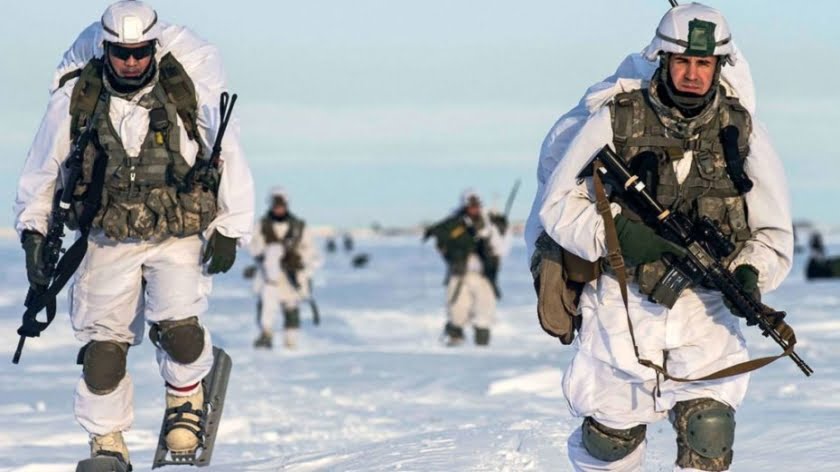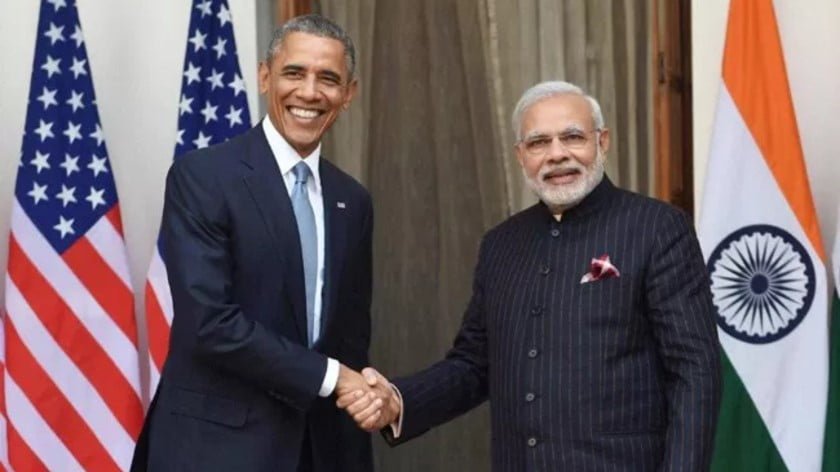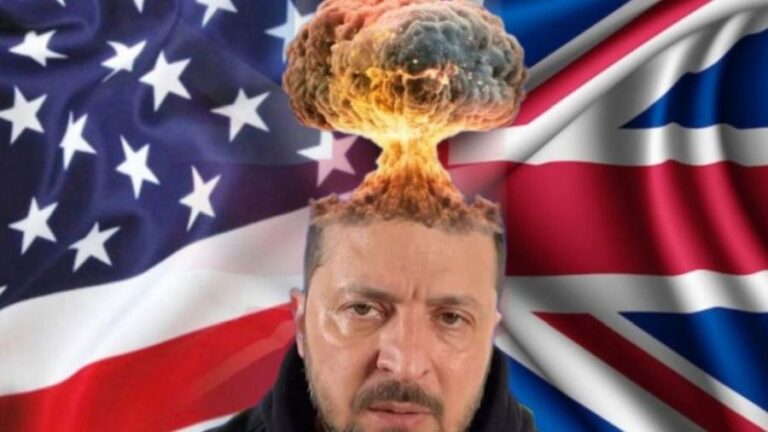Washington Heats Up Its Cold War in the Arctic
US Secretary of State Pompeo continues to travel the world, creating alarm, resentment and irritation almost everywhere. He maintained his lamentable reputation for crass rudeness by cancelling a meeting with Germany’s Chancellor Merkel on May 8 in order to go to Iraq, apparently to try to justify Washington’s despatch of nuclear-capable B-52H bombers and an aircraft carrier battle group to menace Iran.
As observed by Norbert Röttgen, head of Germany’s foreign affairs committee, “Even if there were unavoidable reasons for the cancellation, it unfortunately fits into the current climate in the relationship of the two governments.”
There were no “unavoidable reasons” for Pompeo’s boorish discourtesy, which was regarded internationally as yet another example of the arrogance that so critically influences US foreign policy. And before he insulted Mrs Merkel and the German people he managed to offend several other nations at the Arctic Council meeting in Finland on 6-7 May.
The Arctic Council is “the leading intergovernmental forum promoting cooperation, coordination and interaction among the Arctic States, Arctic indigenous communities and other Arctic inhabitants on common Arctic issues, in particular on issues of sustainable development and environmental protection in the Arctic.” Up until now it has been a shining and all-too-rare example of international cooperation which has resulted in production of valuable environmental, ecological and social assessments.
The Arctic Institute describes the Council as “a model for global governance. It is inclusive of Indigenous perspectives, committed to evidence based decision-making, and a champion of regional peace and stability.” Of great importance is the fact that its mandate, as laid down in the Ottawa Declaration of 1996, explicitly excludes military matters.
But Washington intends to change all that. Instead of contributing to the Council’s aims of championing peace and stability, it has adopted its only too familiar stance of confrontation and patronising criticism.
A most pressing concern of most members of the Council is climate change, and as reported by Reuters the 2019 meeting of the eight Arctic nations “was supposed to frame a two-year agenda to balance the challenge of global warming with sustainable development of mineral wealth.” This was an eminently sensible approach, and not in the least controversial or divisive — unless you are an adherent of Trump, who denies there is any such thing as a climate crisis. In March 2019 he tweeted “Patrick Moore, co-founder of Greenpeace: ‘The whole climate crisis is not only Fake News, it’s Fake Science. There is no climate crisis, there’s weather and climate all around the world, and in fact carbon dioxide is the main building block of all life.’ Wow!”
Moore was not a co-founder of Greenpeace, and is, as Greenpeace states, a paid spokesman for a number of polluting industries who “often misrepresents himself in the media as an environmental ‘expert’ or even an ‘environmentalist,’ while offering anti-environmental opinions on a wide range of issues and taking a distinctly anti-environmental stance.”
But very few people in the US are concerned about disproof of Trump’s bogus pronouncements, in spite of evidence supplied by the Washington Post that he “has made 9,014 false or misleading claims over 773 days.”
So far as the US Military-Industrial complex is concerned, there is no climate crisis in the Arctic or anywhere else. Trump, Pompeo and the rest ignore their own government department, the National Aeronautics and Space Administration, which states that “Arctic sea ice reaches its minimum each September. September Arctic sea ice is now declining at a rate of 12.8 percent per decade, relative to the 1981 to 2010 average.”
In spite of this, Pompeo refused to sign an Arctic Council Agreement that acknowledged climate change as a severe threat to the region. His other achievement was that this was the first time a declaration has been cancelled since the Council was formed in 1996. Americans must be proud.
Finland’s foreign minister stated later that “A majority of us regard climate change as a fundamental challenge facing the Arctic and acknowledge the urgent need to take mitigation and adaptation actions and to strengthen resilience.” He told reporters “I don’t want to name and blame anyone,” which is polite — but regrettable because it’s about time Pompeo, Trump and Bolton were named and blamed for their campaigns of spiteful aggression.
Pompeo tried to justify Washington’s moves to militarise the region by declaring “We’re concerned about Russia’s claim over the international waters of the Northern Sea Route, including its newly announced plans to connect it with China’s Maritime Silk Road.”
He ignores the fact that Russia has not made any claim involving international waters. In accordance with the UN Convention on the Law of the Sea which Russia ratified in 1997 (and is accepted by 157 signatories, but not the US which refuses ratification) it has submitted a request to extend its continental shelf.
The application does not involve the slightest intrusion into the sectors of any other Arctic state. When it was put forward in 2016 the New York Timesreported that “a nation may claim an exclusive economic zone over the continental shelf abutting its shores. If the geological shelf extends far out to sea, the nation can claim mineral resources in the seabed beyond that zone . . . If the United Nations committee accepts Russia’s claim, the seabed under the North Pole would be subject to Moscow’s oversight for activities like oil drilling, though Russia will not have sovereignty over the water or the ice.”
The fact that Russia has submitted its Arctic case to the UN does not cut any ice with Pompeo, who is intent on painting the worst possible picture of the situation, and — inevitably — brought in China to illustrate what he considers to be the grave threat posed by development of the trade route, the Maritime Silk Road (MSR).
As put succinctly by the US Center for Strategic & International Studies, the MSR is intended to “boost infrastructure connectivity throughout Southeast Asia, Oceania, the Indian Ocean, and East Africa. The MSR is the maritime complement to the Silk Road Economic Belt, which focuses on infrastructure development across Central Asia.”
But Washington objects violently to any project that is likely to contribute to the economies of Russia and China.
Associated Press reported that at the Plenary meeting of the Arctic Council on April 9 President Putin “said that Russia plans to expand the ports on both sides of the Arctic shipping route… and invited foreign companies to invest in the reconstruction project.” AP noted that the leaders of Finland, Iceland, Norway and Sweden “who spoke at the forum underlined the need for all countries in the Arctic region to focus on areas of mutual interest despite differences.”
But enter Pompeo, and exit mutual interest, dialogue and cooperation. In his Council speech Pompeo poured scorn on China and accused Russia of “provocative actions”, including, absurdly, “leaving snow prints in the form of army boots”.
The man would be a joke, were it not that he wields power in Washington and is intent on ramping up tension with Moscow and Beijing.
Washington’s policy of truculence in the Arctic has resulted in alienation of badly-needed allies and the firming of resolve by Russia and China to continue development of the Northern Sea shipping route. Pompeo and the other war hawks appear determined to heat up their cold war in the North, but if they intensify their confrontation there could well be conflict.
By Brian Cloughley
Source: Strategic Culture







